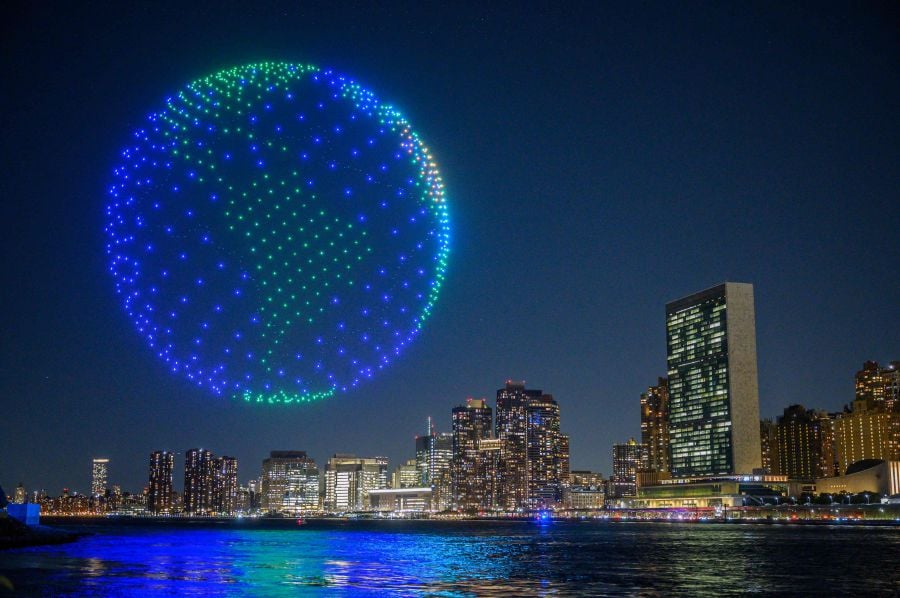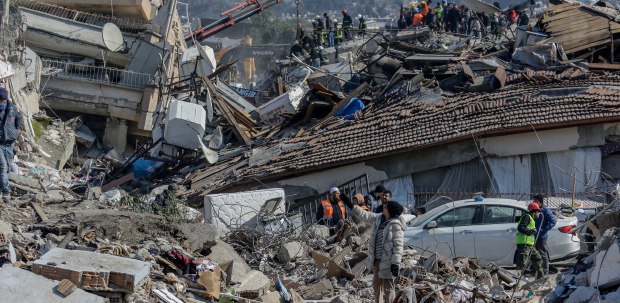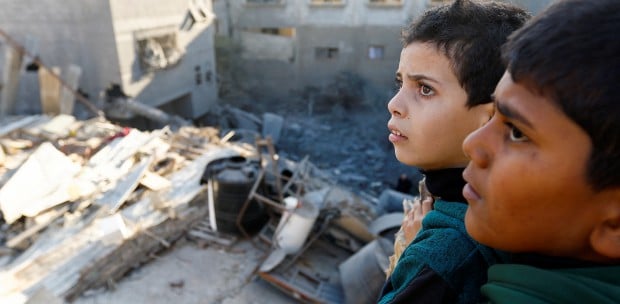UNITED NATIONS, New York: The 78th session of the General Assembly (UNGA 78) is set to commence on Tuesday, gathering over 140 world leaders and top officials from 193 member states in New York.
This year's assembly carries the weightsy theme of "Rebuilding trust and reigniting global solidarity: Accelerating action on the 2030 Agenda and its Sustainable Development Goals towards peace, prosperity, progress, and sustainability for all," which underscores the significance of collective endeavour on a global scale.
Security measures in Midtown Manhattan surrounding the UN headquarters are in full force, with streets cordoned off, roadblocks in place, and heightened security to ensure the safety of the attending dignitaries.
This annual gathering stands as a pivotal juncture for world leaders to convene, uniting their efforts to confront the numerous and pressing international challenges that loom large on the global stage.
At the heart of UNGA 78's high-level week stands the SDG Summit, offering Heads of State and Government a central platform to provide political leadership on the implementation of the 2030 Agenda and its 17 Sustainable Development Goals (SDGs).
However, amid the grandeur and diplomatic discussions, a cloud of criticism looms over UNGA.
IS THE UN GENERAL ASSEMBLY FAILING?
In the eyes of its critics, the UN, in its current incarnation, stands accused of being a "toothless body," found wanting when it comes to addressing the most pressing global issues.
Year after year, the absence of legally binding UNGA resolutions and the recurring debates on certain matters fuel the chorus of detractors.
A case in point —the UN's response to Russia's incursion into Ukraine has been described as feeble, marked by non-binding resolutions and an absence of punitive measures.
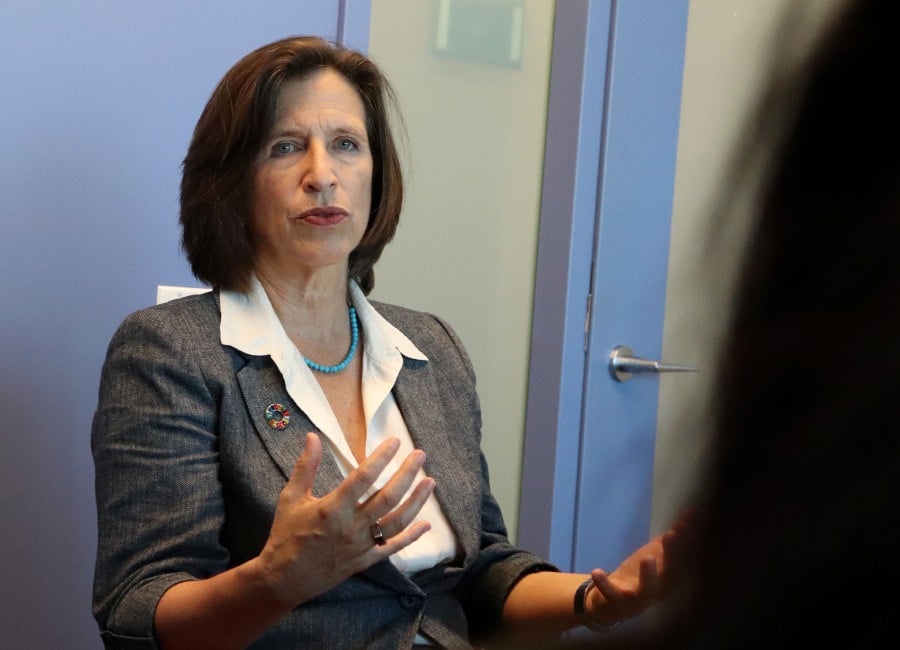
Critics argue that the UN and UNGA's effectiveness in addressing global challenges fall short when compared to regional organisations like North Atlantic Treaty Organization (NATO), Group of 20 (G20), the BRICS group of Brazil, Russia, India, China and South Africa, and the Shanghai Cooperation Organisation (SCO), which often wield more influence and decision-making power.
"(There's) a lot of rhetorical fireworks, promises, an enormous amount of well-meaning, well-intentioned gestures, and then back to reality, which unfortunately means a return to vital national interests, and very little in terms of results," said Anton Fedyashin, a Professor of History at the American University, in an interview with CGTN America.
"The UN is mattering less and less. The Security Council certainly has the legal authority to authorise interventions and to exert influence on treaties.
"But as we've seen over the past 20 years, we've had plenty of interventions that have not enjoyed Security Council authorisation. So, every year we come together to discuss what will transpire at the UN, and every year, unfortunately, we walk away disappointed.
"It appears that regional organisations such as NATO, the SCO, and BRICS are really the venues where decisions are made that actually have an impact on the world, for better or worse."
Akila Radhakrishnan, the president of the Global Justice Center, a nonprofit advocacy group told Foreign Policy: "With how fractured everything at the UN is these days, UNGA may become more a space for grandstanding than a space for any meaningful diplomacy to happen."
Commenting on this, Melissa Fleming, UN's Under-Secretary-General for Global Communications at the United Nations, said the General Assembly is a gesture towards some kind of global democracy.
The assembly, she said, serves as a platform where member states come to deliver speeches, and this seemingly routine act holds significant importance.
"Even just doing that is really important because when you listen to each member state's speech, they try to make it about more than just their own national agendas. It's about the international multilateral system and their role within it," she told the New Straits Times.
"In a way, just that exercise of generating that speech and delivering it, and thinking about how we fit in and contribute, is essential. It involves looking at the issues unfolding here."
She noted that the results of these efforts would manifest in various summits, particularly pointing to the 2023 SDG Summit.
"There will be a declaration from the SDG Summit that, from what I hear, most member states view as a significant step toward consensus on the way forward with the SDGs.
"There is no alternative forum for such critical discussions."
Fleming further expressed optimism regarding progress and the potential outcomes of the three health summits on ending tuberculosis (TB), delivering universal health coverage (UHC) and strengthening pandemic prevention, preparedness, and response.
She also underlined the urgency of addressing issues related to financing and the international financial system, particularly for the world's most vulnerable nations.
"The international financial system is outdated and is failing to serve the needs of the world's poorest countries. This will provide a fresh impetus, even if it doesn't result in sweeping agreements or radical change.
"The UN is a platform for international relations, dialogue, and cooperation. It is a place where nations come together, fostering collaboration and understanding among different stakeholders," she said.
Fleming, however, acknowledged the rising divisions in international affairs.
"Are things more polarised? Absolutely. The Ukraine war has polarised almost everything. It permeates all discussions, not just within the Security Council and that is unfortunate.
"If the discussion is simply moved to NATO, then you're never talking to Russia. You're never talking to the countries that might be sympathetic to the Russian.
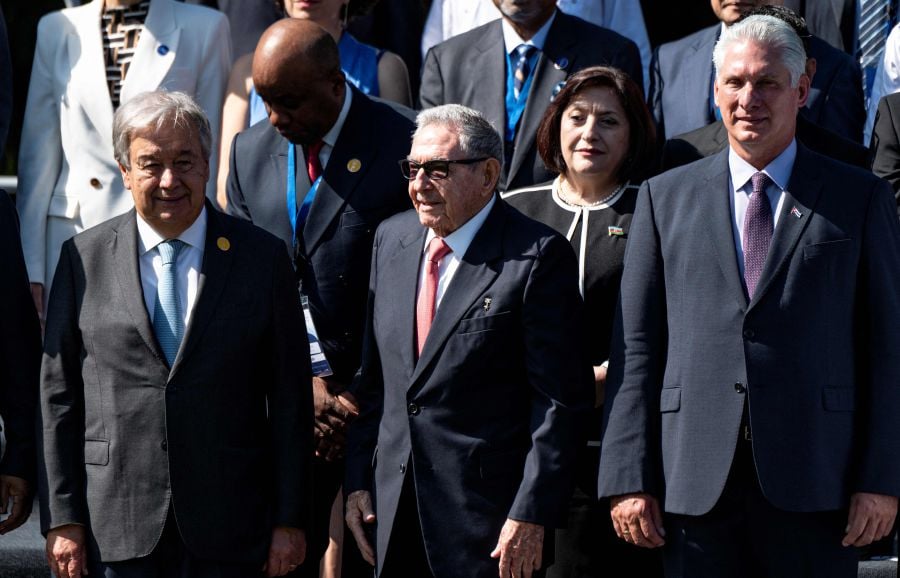
"The UN is here to help us find a way out, to create spaces where opposing viewpoints can be heard and where negotiations can take place."
Fleming also noted that recognition by the UN holds profound implications, as it can impact a country's ability to access international aid and support.
As the UN's second secretary-general, Dag Hammarskjold, said: "[T]he United Nations was not created in order to bring us to heaven, but in order to save us from hell."
ABSENCE OF FOUR P5 LEADERS CAST SHADOWS OVER UNGA78
The heads of state from four out of the five nations holding permanent seats on the UN Security Council are expected to skip this yearly gathering, underscoring the UN's struggles in preserving its position as the go-to multilateral forum for addressing global issues.
US President Joe Biden will be the sole leader from the Permanent Five, known as the P5 of the US Security Council, to attend, which may work to the US' advantage.
At the recent G20 summit, Biden leveraged the absence of Chinese and Russian leaders to engage with nations like India, Brazil, and South Africa, highlighting America's interests and influence.
Chinese leader Xi Jinping has opted to send Vice President Han Zheng in his place. Vladimir Putin, Russia's president, has a track record of skipping the annual the UNGA, but this time around, his travel carries a heightened level of risk due to an International Criminal Court warrant related to the conflict in Ukraine.
French President Emmanuel Macron has scheduling conflicts, as confirmed by several French officials. Macron's agenda is preoccupied with hosting Britain's King Charles III, a trip that's already been rescheduled once before, followed by a visit from Pope Francis.
The absence of British Prime Minister Rishi Sunak is somewhat unexpected, given that this would have marked his inaugural appearance at the General Assembly since assuming office last October. However, Sunak and his Conservative Party are grappling with a decline in polling figures of late, suggesting election troubles ahead.
For the Global South nations, the UNGA represents a platform to present their concerns to the world's major powers. A significant portion of these nations often find themselves excluded from regional gatherings like the G7 or the G20.
The nonattendance of four P5 leaders may fuel the perception among global leaders that the UN is a less action-oriented and less influential compared to recent gatherings such as the G20, where where high-level deals were announced.
UN Secretary-General Guterres Antonio Guterres responded to this emphatically, stating, "I don't think it is because we have or have not a leader of a country that the high-level week is more relevant or less relevant."
He went on to make a pointed remark: "So, this is not a vanity fair. There is, by the way, a large number of the Heads of State and Government that are coming.
"I can give you the statistics. But, that is not what matters.
"What matters is the commitment of the respective government in relation to the objectives of the SDG Summit and many other aspects," he said during a press briefing as he reassured leaders from the Global South who harboured concerns about the high-level week's efficacy in addressing their pressing demands.
Fleming, meanwhile, said some might interpret the non-attendance of these leaders as significant.
Nevertheless, she noted that they will have huge delegations present here.
"These countries are engaged on the international stage, and there were likely specific reasons for the absence of leaders like the French President Macron.
"As for other leaders, it doesn't necessarily indicate a shift toward nationalistic isolation; there could be other factors at play," she added.
It is the powerful countries that make dramatic improvements or changes, thereby causing consequences with global implications that affect smaller nations to varying degrees. How effective are the UN's efforts in addressing the issues arising from this dynamic? This remains to be observed in UNGA 78.
The UN was created in 1945, following the devastation of the Second World War, with one central mission: the maintenance of international peace and security.
The Security Council has the primary responsibility for international peace and security. The General Assembly and the Secretary-General play major, important, and complementary roles, along with other UN offices and bodies.
The General Assembly is the main deliberative, policymaking and representative organ of the UN. It makes recommendations in the form of General Assembly resolutions.
Decisions on important questions, such as those on peace and security, admission of new members, and budgetary matters, require a two-thirds majority, but other questions are decided by simple majority.
NST specialist writer Tharanya Arumugam is a 2023 fellow of the United Nations Reham Al-Farra Memorial Journalism Fellowship.


